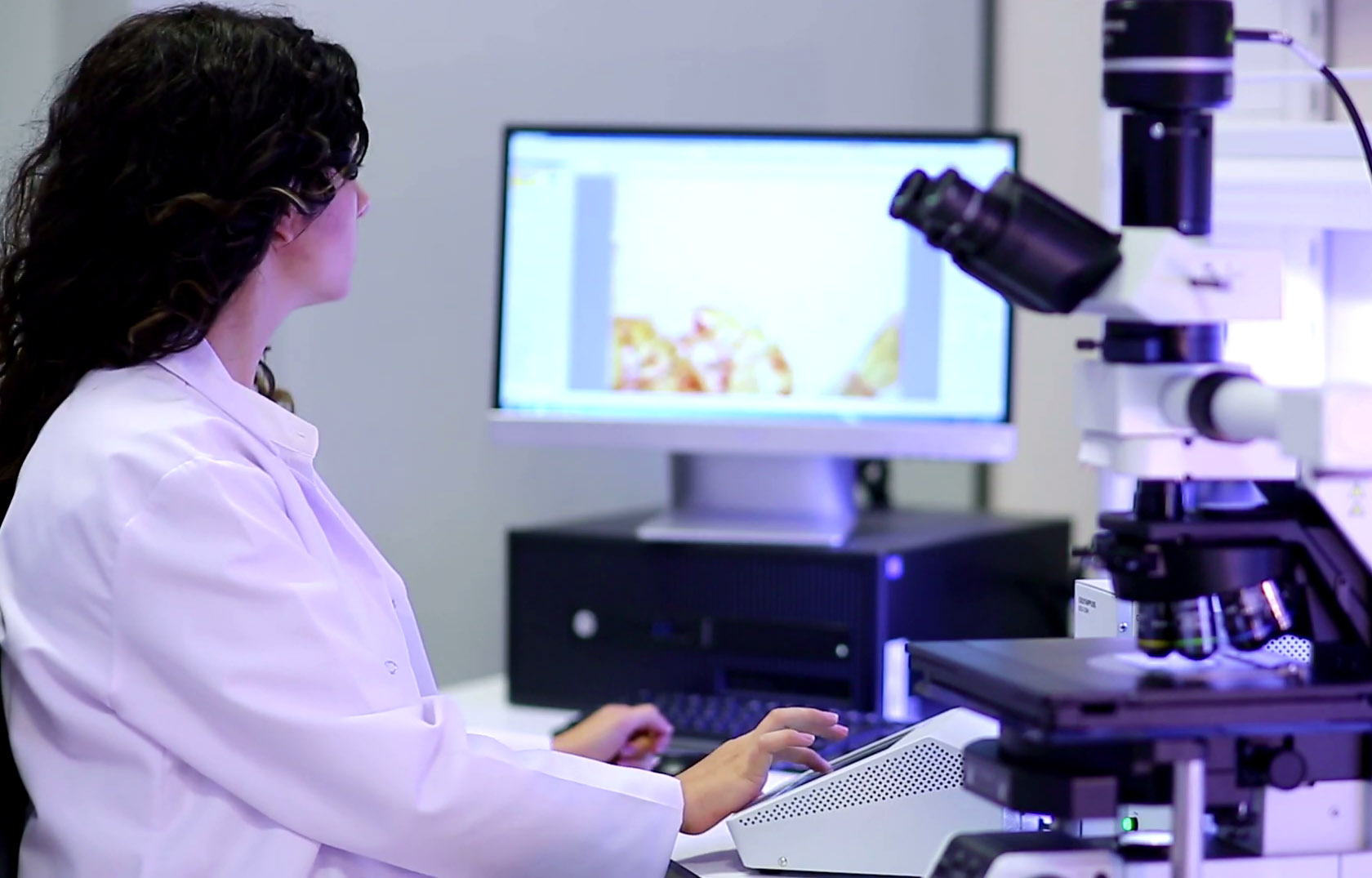AI4SKIN
Artificial intelligence for cutaneous spindle cell neoplasm histopathological diagnosis
El objetivo principal es la valorización de los resultados de la investigación de nuevos algoritmos de inteligencia artificial para el análisis automático de imágenes histológicas (WSI) aplicados al diagnóstico de distintos tipos de cánceres, entre ellos (aunque no limitados): el cáncer de próstata, el cáncer de mama triple negativo (TNBC, de sus siglas en inglés) y el cáncer de piel.

Skin cancer represents the most common group of malignancies in the Caucasian population. The skin cancer incidence rate, melanoma and non-melanoma, is increasing worldwide. In fact, currently, one in three cancers diagnosed is skin cancer. Among the most common skin cancers are skin lesions composed predominantly of spindle cells, a heterogeneous group of skin tumors ranging from benign to malignant. Their diagnosis is made by analysis of biopsied specimens by pathologists. However, cutaneous spindle cell neoplasms are difficult to diagnose due to the considerable morphological overlap between the different tumor types that make up this group, which poses a particular problem for less experienced pathologists. This fact hinders an accurate diagnosis and the application of effective clinical treatment in neoplasms in which early detection and appropriate treatment are essential for a good prognosis in malignant cases. For this reason, AI4SKIN was born as a project whose main objective is to design and develop a diagnostic aid system to automatically classify biopsy samples from the 7 most common spindle cell neoplasms: leiomyoma, dermatofibroma, atypical fibroxanthoma (AFX), leiomyosarcoma, dermatofibrosarcoma protuberans (DFSP), squamous cell carcinoma and spindle cell melanoma. In this way, it would be possible to help pathologists improve in terms of time and efficiency, as well as reduce the level of discordance that exists between them when trying to classify a given specimen.
Biomedical and telecommunications engineers collaborate in the CVBLab group working on the implementation of computational techniques based on Machine Learning and Deep Learning applied to biomedical images, in order to find characteristics and patterns that allow to determine automatically not only if the patient has cancer, but also the type of malignant neoplasm.










Socios





